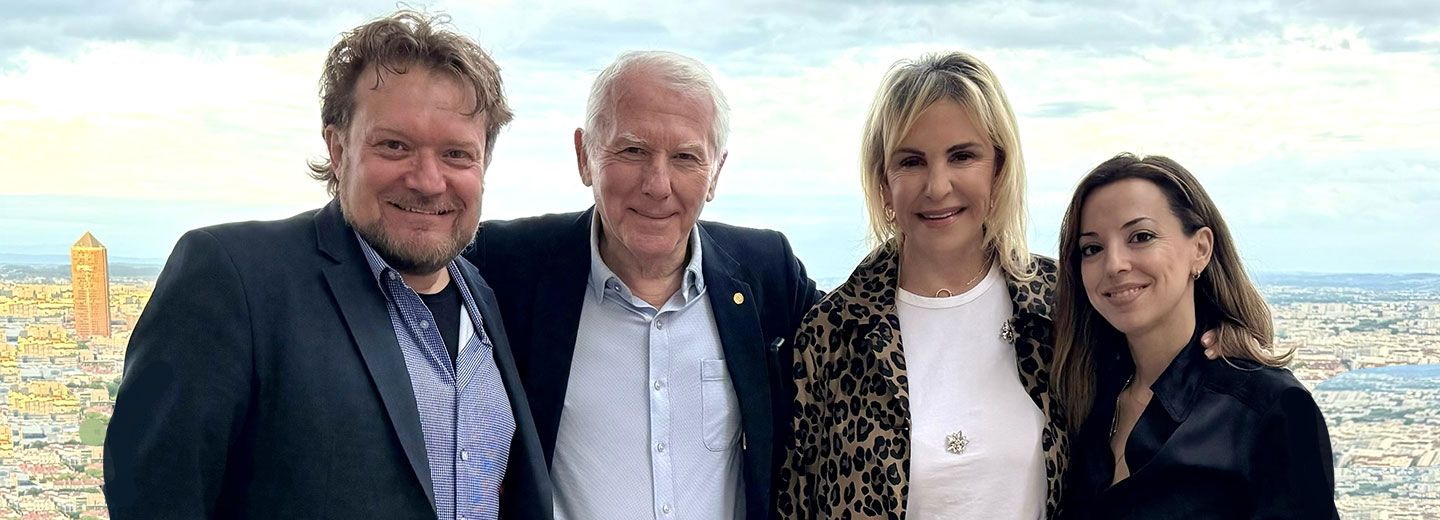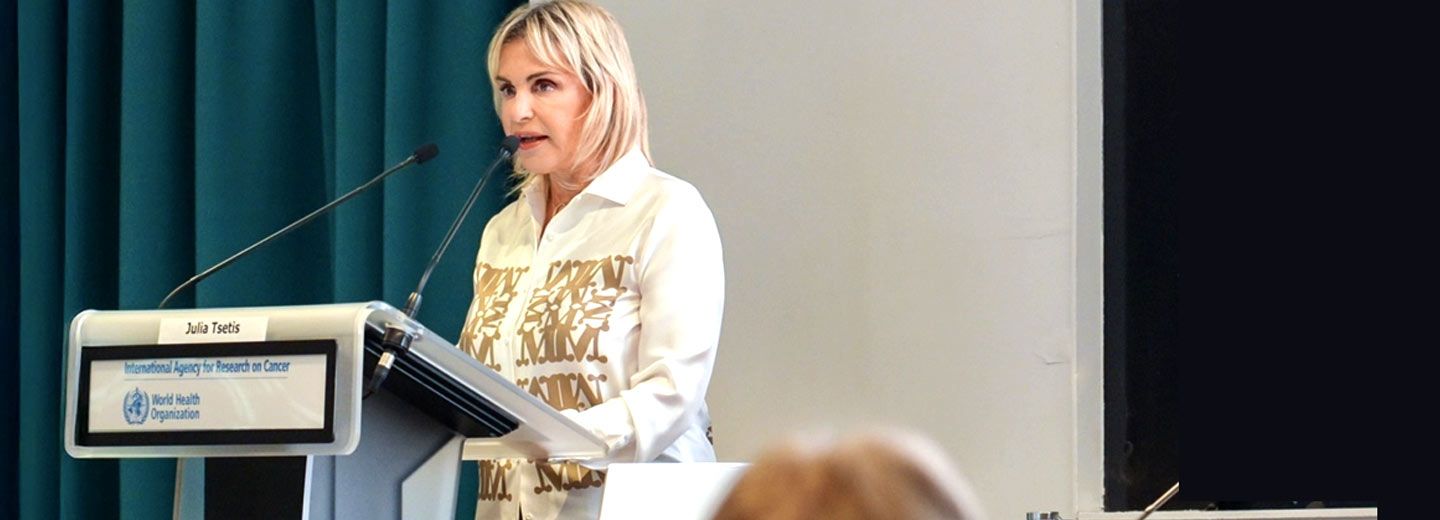Julia Tsetis at the Biomed-AI Summer School 2025 in Lyon: The Critical Role of AI in the Life Sciences, Under Human Guidance
Julia Tsetis, Chair of UNI-PHARMA and InterMed, emphasized the transformative potential of Artificial Intelligence (AI) in the life sciences and pharmaceutical sectors, stressing that meaningful innovation can only be achieved through a synergistic integration of AI with human judgment, ethical principles, and strategic direction. Her remarks were made during the 3rd edition of the Biomed-AI Summer School, held from May 26 to 28, 2025, in Lyon, France.
Among this year’s distinguished keynote speakers were: Dr. Olga Tzortzatou-Nanopoulou, CEO & Co-Founder of the Digital Health Literacy & Policy Hub, Professor Dimitri Nanopoulos, Distinguished Professor Emeritus at Texas A&M University Dr. Andreas Mershin, researcher at the Massachusetts Institute of Technology (MIT), Founder & Chief Science Officer of RealNose.ai, and President of the Osmocosm Foundation, Dr. Nikos Kyrpides, Head of the DOE Joint Genome Institute at Lawrence Berkeley National Laboratory, and Co-Founder & Partner of BioInnovation Greece, and Professor John Ioannidis from the Stanford University School of Medicine, who joined the event virtually.

Andreas Mershin, Dimitris Nanopoulos, Julia Tsetis, Olga Tzortzatou-Nanopoulou
Julia Tsetis welcomed the initiative of the World Health Organization (WHO) in adopting the proposal by Dr. Tzortzatou-Nanopoulou for the participation of the President of the Tsetis Group at the Biomed-AI Summer School—marking the first time that a speaker from the private sector participated in this forum.
In her talk, she emphasized that AI in the pharmaceutical industry contributes to significant time and resource savings, while transforming R&D into a more agile and strategically aligned domain within organizations.
She continued:
“Data-driven AI applications have a transformative impact on the speed and approach to drug development. However, this knowledge intensity must always be human-guided, ethically grounded, and transparent.
In healthcare, AI is a valuable ally: it connects science with society, research with applied practice, and most importantly, it nurtures the next generation of health scientists and researchers who will shape the future of care.
Healthcare is becoming increasingly personalized and patient-centered.
In clinical trials, AI can reduce the number of required participants by using predictive modeling tools to anticipate trial outcomes or potential side effects.
In pharmacovigilance, AI tools will collect vast volumes of data from scientific publications, patient reports, and physician feedback, enhancing drug safety and efficacy.”
Julia Tsetis stressed that innovation lies at the heart of UNI-PHARMA and InterMed:
“We are proud of our legacy in developing world-class medicines, medical devices, nutraceuticals, and cosmeceuticals. Our scientists now have access to better data, faster insights, and more time to focus on creativity. We are pioneering a model that makes us faster, more flexible, more efficient, and more sustainable, through the practical application of AI tools.”.
She illustrated this with the development of a new sunscreen product by InterMed:
“Through the AI Loominus Studio platform, developed by BLI, a startup partnered with the Group, the sunscreen formulation was created at unprecedented speed, with safety and significant resource efficiency. “

The Biomed-AI Summer School, coordinated by the Digital Health Literacy & Policy Hub, was held in Lyon with the support of the Institute for Sustainable Development – EPLO and Archimedes Center (Athena Research Center), and was hosted by the International Agency for Research on Cancer (IARC) / World Health Organization (WHO).
The Digital Health Literacy & Policy Hub is an international, interdisciplinary think tank dedicated to promoting inclusive, ethical, and practical strategies for digital health and AI in healthcare. It was co-founded by Professor Dimitri V. Nanopoulos and Dr. Olga Tzortzatou-Nanopoulou.
Through research, education, and cross-sectoral dialogue, the Hub bridges the gap between scientific research, innovation, and applied practice.
The Lyon event served as a vibrant forum for exploring the latest developments in biomedical research, artificial intelligence, and bioethics. The Biomed-AI Summer School 2025 offered a unique opportunity for dialogue with leading figures from the fields of technology and health sciences, delivering inspiration, impactful presentations, and meaningful reflection on the future of health and AI.